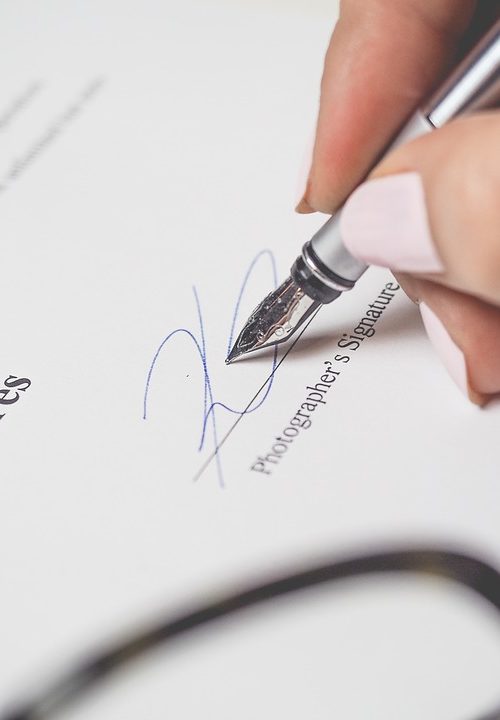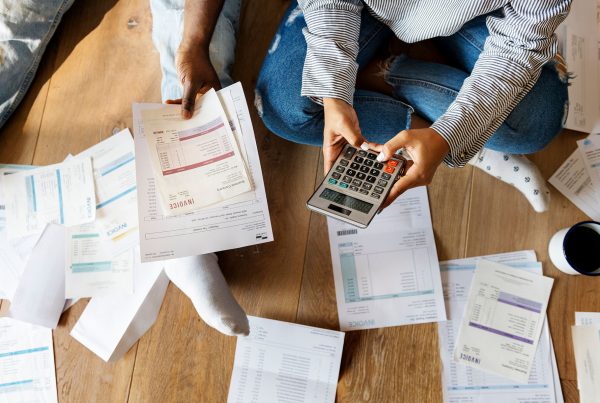How can my partner and I get out of Debt?
Joint debt consolidation loans can be a fantastic solution for couples who are faced with unmanageable repayments each month. Before deciding if it’s the right choice for you, it’s important to sit down together and ensure you’re both on the same page. Here are some tips that can help guide the conversation.
Why do you want to get out of debt?
Seems like a simple question but this is where you will find your motivation and incentive to make a difference to your financial position and your happiness and wellbeing. Write them down and look at them frequently.
Do you know where you stand financially?
Work out your income, your outgoings and look to see where you could be cutting down on your spending versus what you absolutely must spend to survive. Be honest about your calculations.
What are the different ways of getting out of debt?
There are different loans and financial solutions to help you get out of debt, so make sure to check out the full range before making a decision. Solutions include debt consolidation loans and arranging a new mortgage deal.
How long will it take?
you know your debt and the amount of money that you can put towards it, you can work out how long it will take you to pay off your debt. You can work out what debts have the highest interest rates and look to pay those off first.
I need to pay it off faster – how can I do this?
You could always consider trying to earn some more income, with a second job or some weekend shifts. You might not have the time to do this, but it is worth considering it. You can also work out of you can lower your basic expenses. It might require downsizing or changing your lifestyle, but it might be worth it in the end.
What is a spending plan?
A spending plan is a budget that sets out what you can afford and what you can’t afford. If you know your own limits and stick to it, then you will have greater financial control.
Average UK family debt: facts and figures
The average household debt in the UK, including mortgages, is £60,526 – or £31,972 per adult.
The Office for Budget Responsibility forecasts that household debt of all types will rise from £2.068 trillion, in 2019-20, to £2.425 trillion in 2023-24, with the average household debt rising to £86,388.
In August 2020, the outstanding consumer credit lending was £207.8 billion, with a total outstanding credit card debt of £62.3 billion.
Average credit card debt per family
The average credit card debt per family in the UK is £62.3 billion, by August 2020. This represents a decrease of 13.8% in the months running up to August 2020. The average credit card debt is £2,241 per household and £1,184 per adult.
My family is in debt. What can I do?
Taking control of your family’s debt is taking a step in the right direction. The first thing that you should do is to prioritise your debts. Make a list of creditors and the amounts of debt you owe and what is most urgent.
Your mortgage or rent is the most important outgoing that you will have. Make sure the you can cover that and then look at your credit cards or store cards and other loans.
Make a budget and work out your income and essential outgoings. Stick to your budget and really cut down on your unnecessary spending – you will notice a difference in your level of debt.
Check out the different loans and financial solutions that can help you get out of debt in detail before making a decision. Solutions include debt consolidation loans and arranging a new mortgage deal.
Parents in debt – what to do
You can help your parents to take responsibility for their debt, but you cannot take liability for it. Sit with them to understand the position that they find themselves in. Encourage them to be honest and share their exact financial position with you.
Then, make a list of their creditors, the amounts of debt owed and what the most urgent debts are – or the ones with the highest interest rates.
Work out what they have left after their mortgage or rent and set out clearly how much they can afford to spend on debt repayments. Create a budget for them to stick to and work with them to make sure they make their payments on time. You may also want to look at the different loans and financial solutions that might work for them. These include debt consolidation loans.
Moving back in with parents to pay off debt
Moving back in with your parents is a golden opportunity to pay debts off. It means that you might be paying reduced bills – sharing with them- and you may be benefiting from their financial security in terms of heating and electricity. Your parents may ask you for a contribution or not. This offers you the opportunity to plough more of your income into paying off your debts.
Work out what you need to give to them, a reasonable amount for living expenses and then put every extra spare penny into paying off your debts.
Can debt collectors call your family?
Debt collectors are bound by the same confidentiality laws as other industries. They are not at liberty to discuss your debt with friends or family – or anyone that they may meet when visiting your property. They must abide by data protection laws, including GDPR and may not share information about your financial situation with anyone else without your permission.
How to stop debt collectors from calling family members
Debt collectors must adhere to the law when pursuing a debt. Debt collectors can be stopped from calling by writing a Cease and Desist letter that ensures that they can’t call endlessly and inform them that you only wish to deal directly with the creditor. Your Cease and Desist letter can also say that any further contact from the debt collector will result in legal action. Send the letter to the debt collector’s official office, making sure that you keep a copy of the letter. You will need one letter per debt collector.
Can student loan debt affect families?
Student loans are not considered the same as other loans. Unlike credit card debts, student loans don’t count against you if you’re applying for a mortgage or against your credit history. Student loans will probably be included in lenders’ affordability calculations to see how much they think you can afford to repay every month.
What can I do when an elderly parent cannot pay credit card debt?
Things change and a parent who has been able to financially look after themselves all of their lives may get into difficulties. You are not liable for your parents’ debt but there are things that you can do to help them.
Sit down with them and look at their bills, their debt and their financial situation. Make sure that they are the only person using their card and that they know what all the payments are on the statement. Help them to simplify and consolidate their finances and work out what debts need to be addressed first. You might want to help them pay some debts off or you might even want to look at power of attorney so that you can step in and act on their behalf.
Parents put me in debt. What can I do?
Helping your parents might change your personal financial situation, putting you into debt. However, if you don’t have shared financial agreements with your parents, their finances will not impact your credit score. While debts don’t die when the person dies, you can’t inherit debt from anyone.
In the case of death and debt, the debts they were solely responsible for are recovered from their estate. An ‘estate’ is the money or assets left behind after a death. The debts are settled and, only then, can the rest of the estate be divided between beneficiaries.
There are always a number of financial solutions available to help you with any given circumstances that you might find yourself. Take a look at the options on offer, including debt consolidation loans.
How to tell your parents you’re in debt
It can be hard to talk to loved ones about debt, but it is better than struggling with it alone.
They may be able to offer practical advice and help you to create a budget or work out your outgoings. They can also help you communicate with your creditors.
Am I liable for my spouse’s credit card debt?
It depends. If they are the sole named person on a credit card, they alone are liable for that credit card debt. You might wish to support them in any way that they need, however only they are liable for paying it back. Credit cards cannot be held jointly, but you may be a named user on the credit card with a card of your own. You are still not liable for the debt.
Is a spouse liable for business debt?
It is highly unlikely that a spouse would be liable for business debt, but there are some circumstances under which they might be. If your spouse is not connected with your business in any way, they will not be liable. Even a limited company structure limits personal liability and directors should not be liable, unless they’ve engaged in fraud or misfeasance.
However, if you have set up a Partnership with your spouse and the debt has been incurred to the partnership itself, even if your spouse plays no part in running the business, you remain ‘joint and severally liable’ for the debt. Partners are ‘personally liable’ for business debts incurred by the partnership.
If your spouse is a sole trader, there is also no separation between personal and business assets. A creditor can take possessions jointly belonging to a spouse if the debtor is – at least – a part owner.
Does your family inherit your debt when you die?
In the UK, debt is not inherited upon the death of a relative. This means family and friends will not be responsible for the debt of the deceased. However, if you have a loan in joint names, or if you have acted as a guarantor, you will be responsible for settling the debt.
Who is responsible for the debt of a deceased family member?
If someone in your family dies, their debts become a liability on their estate. This means that the executor of the estate is responsible for paying any outstanding debts from the estate. If no Will has been left, this falls to the administrator. If there’s not enough money or assets in the estate to pay off debts, then they will be paid in priority order until the money or assets run out. Probably, any leftover debts will be written off. If there is no estate – and therefore no money – debts usually die with the person. Family members will not be responsible for debt, unless they acted as guarantor or are a co-signatory on the debt.
Can you inherit debt from your parents?
No, if your parents’ debt belongs solely to them and not jointly with you then you cannot inherit debt from your parents. When parents die, their estate is used to settle their debts. Once the debts have been settled, the money is shared out as requested by the Will.
Are children responsible for parents’ debt after death?
No, your parents’ debts are dealt with by their Estate and this is handled by the Executor of the Will. Your parents’ finances don’t impact yours or your credit score – unless you hold loans with them jointly. Their debts don’t die with them but they are paid off from the estate that they leave behind, before any money left behind in their Will is shared out.
Does debt pass from parent to child?
Debts don’t pass from parent to child and your parents’ debts will be paid off with the funds from their Estate. If there is no money or Estate, the debts will die with them.
If parents die with debt who pays?
If parents die with debts, then the debts will be paid off with the money or assets in their Estate. They will have named an Executor in their Will who is responsible for paying the debts from the Estate, but the Executor is not liable for the debts. If no Will has been left, the debts will be paid off by the administrator. If there is no Will and no money or assets, the debts will most likely die with the person. Relatives or friends will only be liable for the debts if they were a co-signatory of the debt or a guarantor.
Are siblings responsible for sibling debt?
No, your sibling’s debts are dealt with by their Estate which is handled by the Executor of the Will. Your sibling’s finances don’t impact yours or your credit score, unless you hold loans jointly with them or you acted as guarantor for their loans or are a co-signatory of the debt.
Am I responsible for my spouse’s debt after death?
It does depend on the type of debt. If a person leaves behind unsecured debts (personal loans, credit cards) and it depends on whose name the debt was in and the assets on the deceased, such as savings or property.
Debts in the deceased’s name only:
Will be written off if there were no assets or be repaid from the person’s Estate (savings, property or share thereof).
Debts in joint names:
The living person named on the credit agreement then becomes responsible for repaying the full debt.
However, if you ae a named holder of a credit card but the primary account holder dies, you will not be liable for the credit card debt.
Is my wife responsible for my debt?
A wife is not responsible for your debt, however there are some circumstances under which she might be. If your spouse is not connected with your debt in any way – not a shared debt or not a guarantor – she will not be liable. If your wife signed the credit agreement with you, then she will be liable and responsible for your debt.
Is a husband liable for a wife’s debt?
No, a husband is not liable for a wife’s debts if they belong solely to her. If the husband is not connected with a wife’s debt in any way – not a shared debt or not a guarantor – they will not be liable. If a husband and wife sign a credit agreement together, then they will be liable and responsible for the debt together
Am I liable for my wife’s debts?
No, you are not liable for your wife’s debts if they belong solely to her. If you are not connected with your wife’s debt in any way – not a shared debt or not a guarantor – you will not be liable. If you signed the credit agreement with your wife, then you will be liable and responsible for the debt together.
We offer Debt Consolidation Loans for homeowners.
Our team is on hand to help with number of questions you may have.
If you are struggling with debt, please visit Money Advice Service for help and advice.
We are a broker, not a lender.
Visitors also read:
 Coronavirus Debt
Coronavirus Debt
Coronavirus Debt
 Citizens Advice Bureau Explained
Citizens Advice Bureau Explained
Citizens Advice Bureau Explained
 The dangers of credit card debt
The dangers of credit card debt
The dangers of credit card debt
 Self-employed Debt Advice
Self-employed Debt Advice
Self-employed Debt Advice
 Thinking of Starting a New Business But Have Debt?
Thinking of Starting a New Business But Have Debt?
Thinking of Starting a New Business But Have Debt?
 How can debt affect your mental health
How can debt affect your mental health





